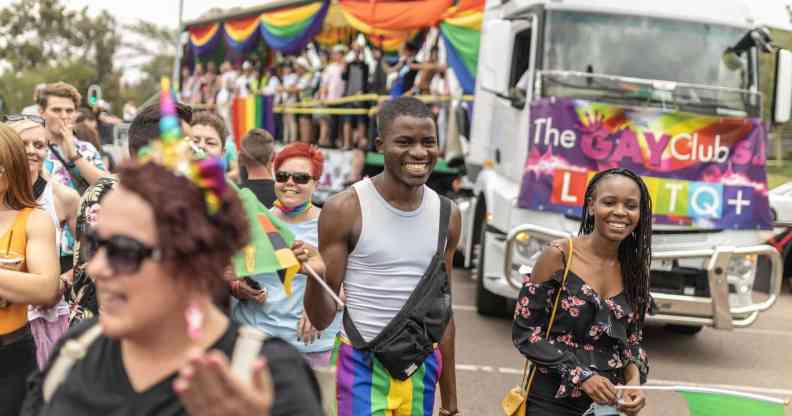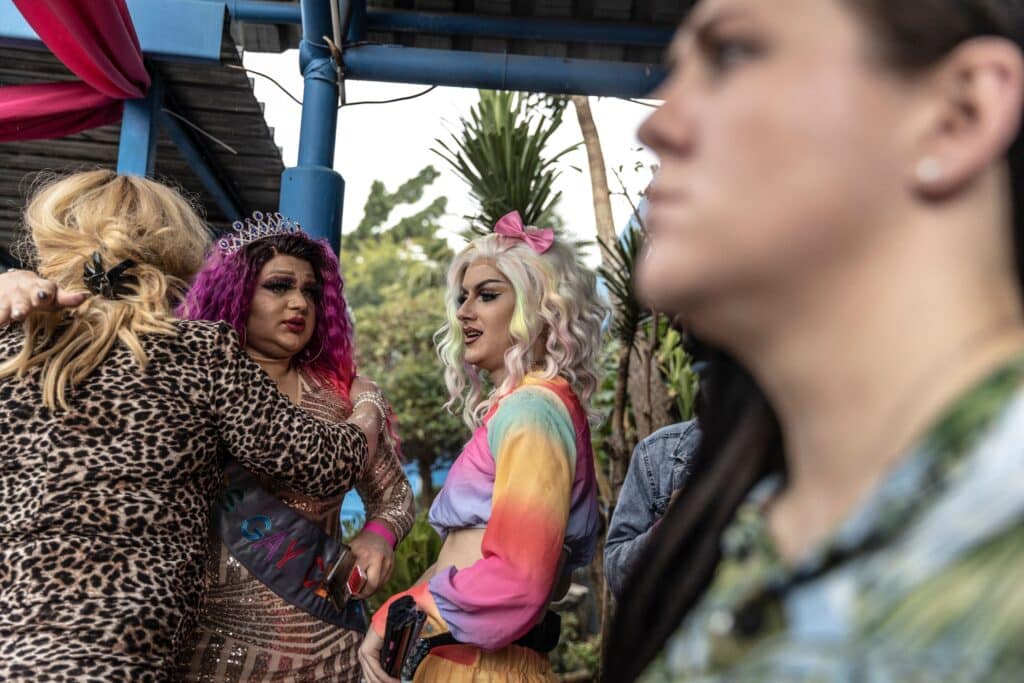Record number of African youth back LGBTQ+ rights, ‘biggest ever’ survey finds

South Africa attracts queer emigrants from the continent and beyond escaping prosecution and homophobia. (Getty)
A startling new report has shown that LGBTQ+ rights are a growing priority for young African people.
The survey, conducted by Ichikowitz Family Foundation, found that addressing gender-based violence was the highest priority for many young people across sub-Saharan Africa, with 81 per cent of the respondents saying more needs to be done.
Improving women’s rights came in close second, with 79 per cent saying that was a concern.
In comparison, only 38 per cent said they wanted their governments to do more for LGBTQ+ rights.
This was a seven per cent increase in support for LGBTQ+ rights from the foundation’s last survey, conducted in 2020.
The Ichikowitz Family Foundation conducted 4,507 face-to-face interviews with people between the ages of 18 and 24, in 15 sub-Saharan countries which included: Angola, Congo-Brazzaville, the Democratic Republic of the Congo, Ethiopia, Gabon, Ghana, Kenya, Malawi, Mozambique, Nigeria, Rwanda, South Africa, Sudan, Uganda, and Zambia.
The aim of the survey was to provide “insights into the aspirations, motivations and viewpoints of Africa’s youth”, the foundation said.
The countries with the most support for LGBTQ+ rights were South Africa, with an overwhelming 83 per cent, followed by Mozambique with 63 per cent and Gabon with 62 per cent.
The report showed that the countries with the least support for LGBTQ+ people were Uganda, Sudan and Malawi.

Malawi ranked the lowest in the survey for showing concern over LGBTQ+ rights. (Credit: GUILLEM SARTORIO/AFP via Getty Images)
Only nine per cent of people supported LGBTQ+ rights in Malawi, followed by 16 per cent in Sudan and 21 per cent in Uganda.
Anti-LGBTQ+ violence continues to plague many countries across Africa, often fuelled by homophobic laws carried over from colonial rule.
In South Africa alone, six queer people have been brutally murdered this year, and this number unfortunately continues to rise.
In June, a 14-year-old boy was driven to suicide after relentless bullying from his classmates for being gay.
Nico De Klerk, the Johannesburg-based director of communications for the group promoting the survey, told Forbes that it serves as a “crystal ball” for the future of Africa, and hopefully represent a tide of positive change to come.
“It’s the most comprehensive survey to date on Africa’s youth, period,” De Klerk said.
Kgalema Motlanthe, former president of South Africa, wrote a message in response to the survey and called for more to be done for LGBTQ+ people.
Motlanthe wrote: “We must encourage the growing awareness to protect minorities but evangelise on the need to include the LGBTQ+ community as deserving of the same respect and care.”

